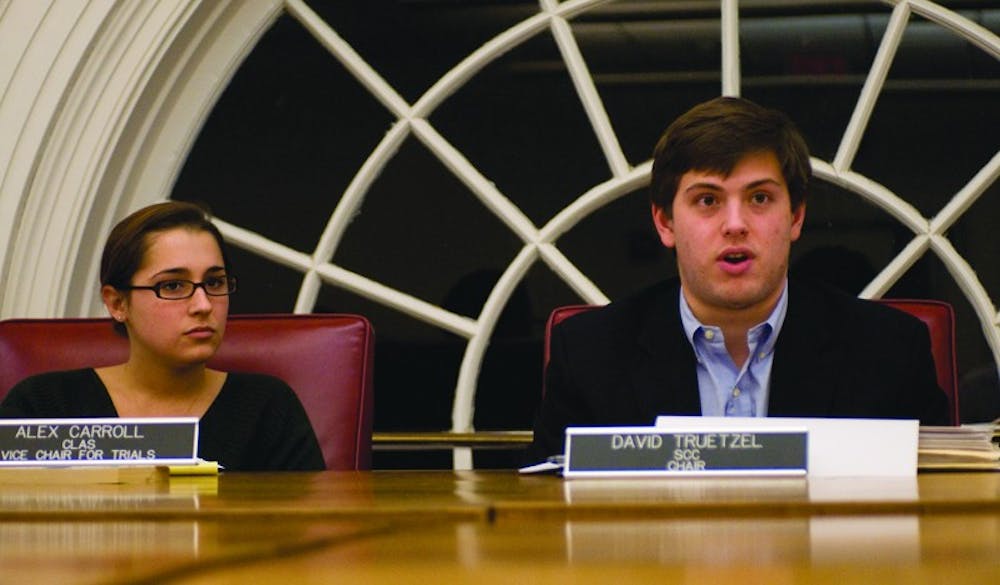Members of the Honor Committee proposed two amendments at last night's meeting, both of which will be put on a referendum to be included in the University-wide elections Feb. 26.
One of the changes would alter the language of the Amendments article of the Committee's Constitution, while the other would create a protocol for situations when two students brought under trial for the same honor offense cannot agree on the composition of the jury. Eighteen Committee members voted in favor of the first amendment, while one member voted against it. All 20 members present at the meeting voted in favor of the second amendment.
The Committee continued its discussion from last week on its proposed amendment to Article VII, which outlines the procedure for amending the Committee's constitution, said Committee Chair David Truetzel, who proposed the first amendment.
The proposed amendment seeks to minimize the differences between the processes of the University Board of Elections and the Committee by clarifying the two ways of changing the constitution, he said.
Currently, amendments to the Committee's constitution - which must all later be ratified in a University-wide referendum - can be proposed either through a two-thirds vote by the Committee in favor of the amendment, or through a petition signed by at least 10 percent of the "entire student body." Committee members expressed concerned about the ambiguity of the term, "entire student body," which can be defined in numerous ways, such as the amount of students seeking degrees or the amount of people taking classes for credits - a difference of almost 3,000 people.
The proposed amendment gives the UBE the authority to define "the entire student body," Truetzel said.
The amendment change would give the UBE the power to set other requirements for elections, as well.
"The validity and deadlines for receipt of petitions and signatures, election dates, vote counts, and other matters relating to the process and administration of elections, shall be as determined by the University Board of Elections," according to the proposed amendment.
The second proposal concerned situations in which more than one student is on trial for the same honor violation.
"It doesn't happen often, but sometimes more than one student will be tried on," said Vice Chair of Trials Alex Carroll, the proponent of the amendment.
She said it is more effective to have all such students tried together but added that the Committee currently has no system in place for a situation where the students being tried cannot agree on the type of jury they would like to be used. The new amendment would make a mixed jury the default jury in such a situation, she said.
"Where charges against two or more students will be heard at the same trial, the panel shall be of the kind agreed upon by such students and, lacking such agreement, shall consist of both elected school officers and student jurors," the amendment states.
"The reason to default to a mixed jury is, no matter what [each student] wants, at least some of that jury panel [will] be represented," Carroll said.
Moreover, if one student opted to have a public trial while the other wanted a closed trial, the trial would be closed by default, to protect confidentiality.
"We want students to have as much of their own decisions as possible in such a serious manner," she said.







